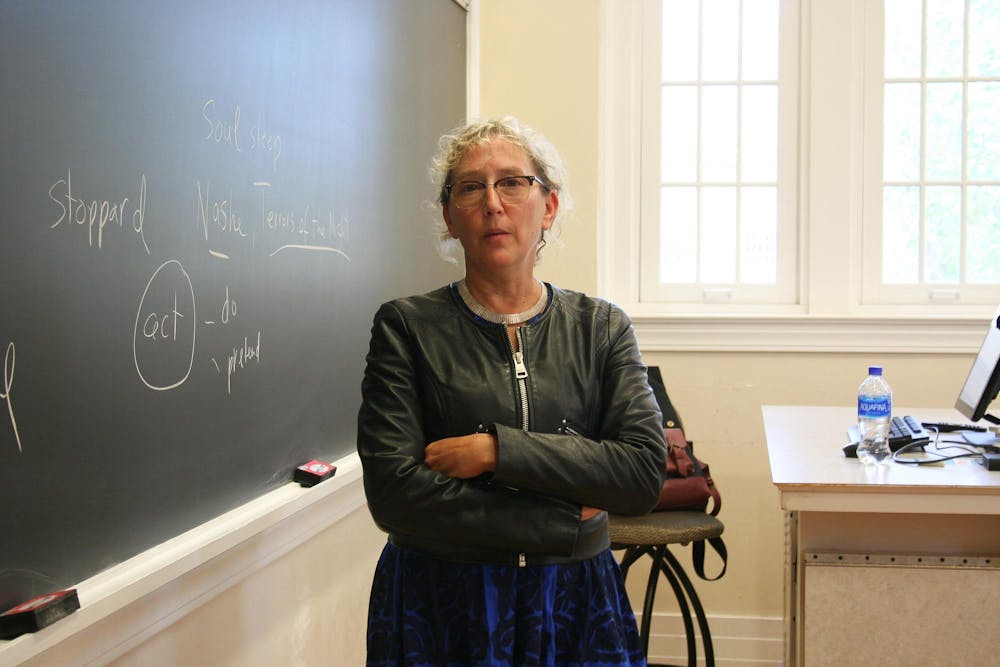Last fall, Chair of the Linguistics Department Misha Becker said she found herself feeling burnt out and questioning whether she had the energy to teach students and conduct research.
She would soon negotiate a “much-needed” semester of Research and Study Assignment leave for the 2023 spring semester.
Becker faced burnout — something some UNC faculty have voiced concerns over. With the recent restrictions on distinguished professorships for non-STEM fields, some humanities professors said they feel that policy changes and lack of support from the North Carolina legislature have especially contributed to stress and burnout within their departments.
“We have been under attack. We're the ones who are losing tenure track lines, who are having funding taken away, who aren't able to fund programs,” Jessica Wolfe, professor of English and comparative literature, said.
RSA leaves — like the one Becker took — are allowed once every 5 years for tenured and tenure-tracked faculty. For Becker, taking leave meant rejuvenating her ability to do her job well.
“I think if I hadn't been able to take that leave in the spring, I would have had a very hard time coming back this fall,” she said. “And feeling like, 'Yes, I have the energy to teach my students and do my research.'”
She attributes her burnout to having to balance chairing, teaching and conducting research — a feat she calls “almost impossible.” Wolfe said she also feels the effects of burnout and spoke of the importance of taking an academic leave.
“It's not that we want time away from teaching because we don't like teaching or we think scholarship is more important, but that actually a balanced life involving both of them stands to benefit both ends of one's career,” Wolfe said. “My teaching benefits my scholarship and my scholarship benefits my teaching.”
She said while professors in the STEM field face their own challenges — like securing external research grants — humanities professors face large teaching burdens that aren’t reflected in the policy-making decisions.
“I think particularly they made clear that they don't understand that teaching a humanities class, one with a great deal of reading and writing and the grading of student essays, is much more labor intensive than teaching a class in the hard sciences where all the tests can be run through a scantron machine,” Wolfe said. “I cannot run Shakespeare essays to a scantron machine.”
While members of the Board of Trustees, Board of Governors and the state legislature have recognized the important connection between research and teaching within STEM fields, the same level of recognition is not there for humanities and social sciences fields, professor of classical archaeology Donald Haggis said.
He said there is not a specific "villain" to blame for this change, but that there needs to be a systemic shift in how the intersection of research and the humanities is treated.
Haggis noted that faculty burnout also stems from the need to balance administrative tasks in addition to their teaching and research. He said often this type of work can hinder a professor’s ability to conduct research and get tenure — all of which is necessary to qualify for an RSA leave.
“That, at least on the pre-tenure level, can lead to burnout, and certainly leads to a lot of stress,” Haggis said. “Because faculty have to find a way of fitting in their research into their workday, which is kind of impossible to do.”
Becker said she had similar feelings in her role as chair of the linguistics department. She said it is difficult to balance her chair responsibilities with teaching and research, despite having a reduced teaching load as a chair.
“If I didn't have to teach at all, I would be great at this job,” Becker said. “I could be a great chair and I could get my research done, I could publish. I can't do that if I'm teaching at the same time.”
Becker said these issues make it harder for many faculty members to do the work they’re passionate about.
Wolfe voiced her frustrations with the lack of support for the humanities field, especially from administrative entities like the UNC System.
“I think the faculty, and particularly the faculty in humanities, are in a panic mode now," Wolfe said. "We don't know what's going to happen next, what is going to be taken away next. What we can be reasonably assured of, is that it will be a top-down decision and we will have absolutely no say in the matter.”




